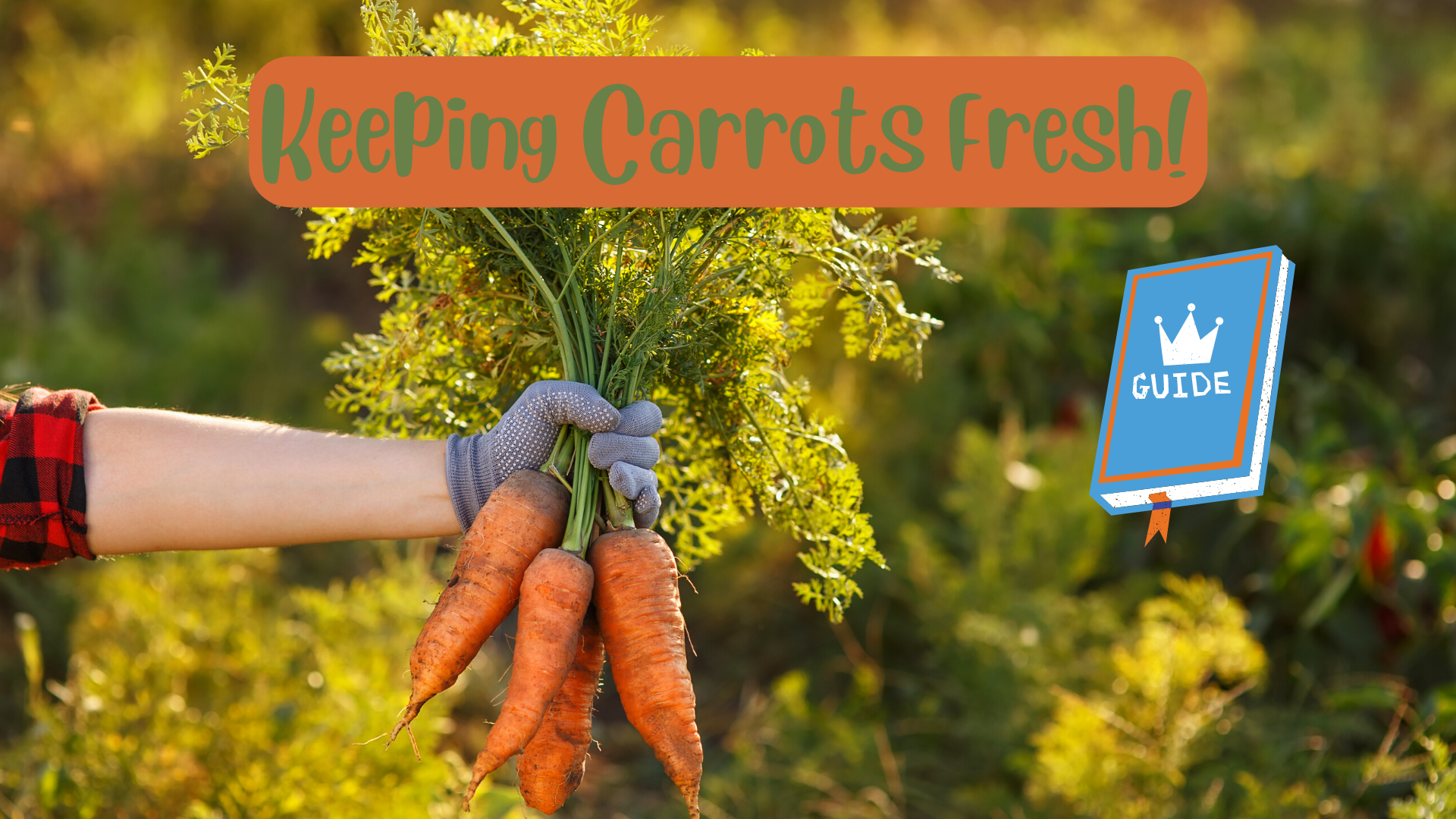During the winter season, carrots grow to their potential, allowing them to be stored at room temperature. But you’ll need to learn how to keep carrots fresh as it becomes an issue as you cannot store them in the heat of the summer.
Some people improvise by storing them in the fridge’s vegetable drawer. However, if you keep raw carrots inside the refrigerator, they form a rubber-like texture and proceed to rot within a few months. Additionally, storing dried carrots with other fruits (in the fridge) is a bad idea because some fruits produce ethylene gas, which causes carrots to lose their flavor.
Freezing carrots is also not a good option, leading to wilted and soft carrots. Another alternative is pickled carrots, but not everyone likes that flavor. So, what can be done to keep carrots fresh until the spring season? Read on to find out about all the methods of storing carrots and FAQs regarding the matter.
The Basics Of Preserving Carrots
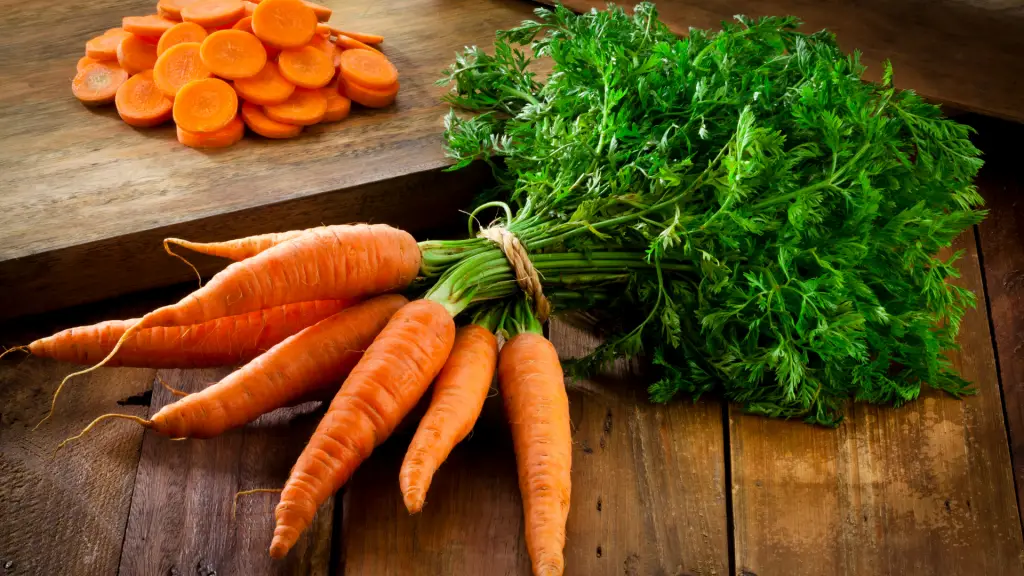
Carrots are root vegetables, which usually require a lot of moisture when stored. The easiest way to keep carrots for a short time is to place them in the bottom of your fridge with a damp paper towel.
Remember that this is a temporary fix; if you keep carrots like this for a long time, they will go wrong. Hence, you must look for methods to prevent moisture loss so that your carrots stay fresh for a long time.
Here are a few easy ones you can try.
Method 1: The Plastic Bag Method
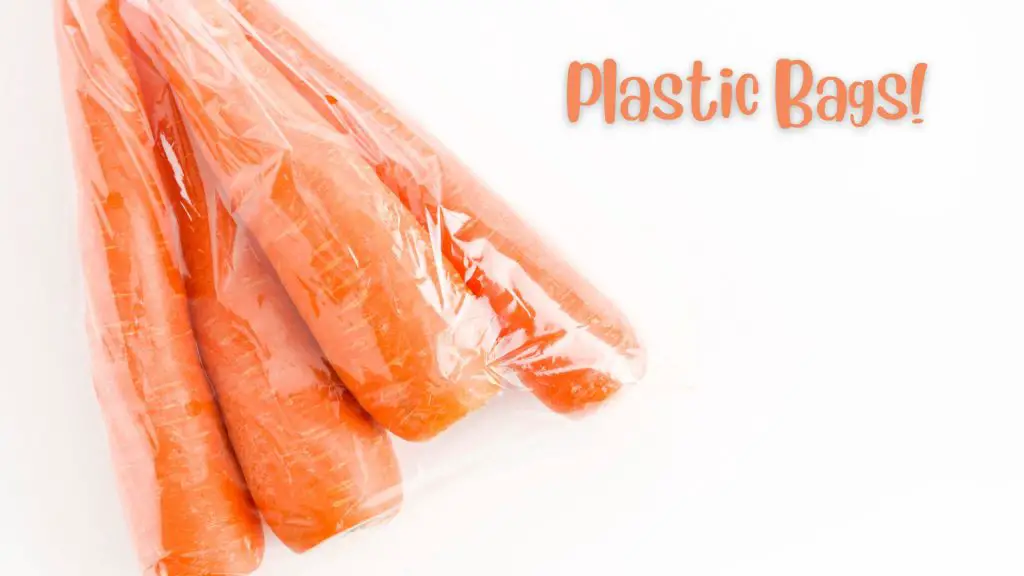
This is the most convenient way to store carrots and keep them crisp for up to a month. You can also store baby carrots and peeled carrots using this method. To do this:
- Grab clean, dry carrots and wash them thoroughly—unwashed carrots have dirt on them, which affects preservation, which is why washing them is essential.
- Dry them with a cotton towel, or leave them on your countertop to air dry. Make sure that there is no excess moisture on the carrots.
- Cut all your carrots into small pieces and store them in a plastic bag. Using a Ziploc is ideal for this situation. While putting the carrots in the Ziploc, be sure not to remove all of the air from the bag as it needs moisture to preserve itself.
- Store the plastic bag in the root cellar or an area in the house that is not too humid. Enjoy your fresh carrots whenever you want for up to a month.
Method 2: The Dehydration Method
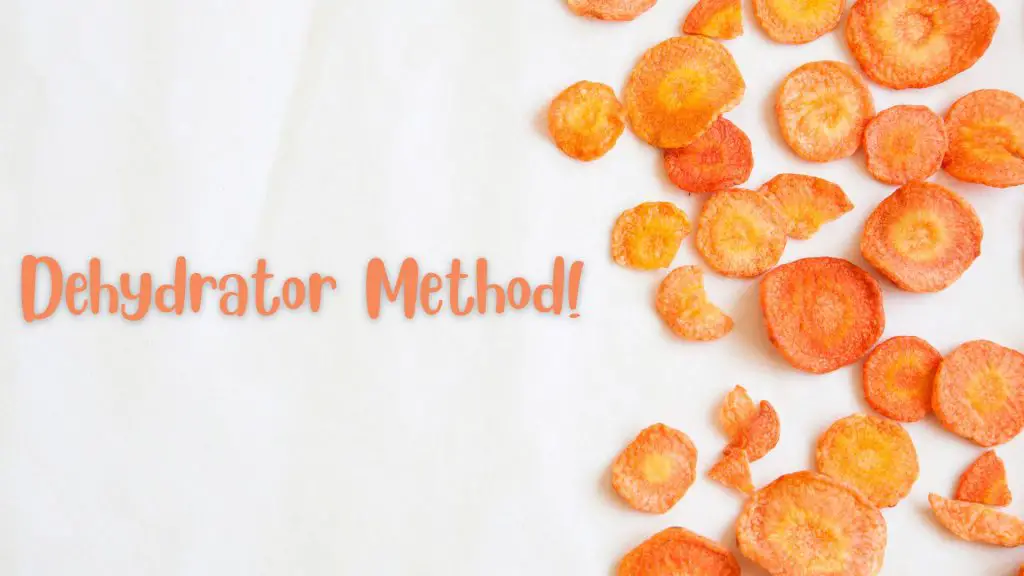
Using a dehydrator removes all the water from harvest and keeps carrots fresh for a very long period. By dehydrating your carrots, you can save money and consume them all year round. To do this:
- Wash your unpeeled carrots and cut them into pieces making sure to remove all of the green carrot tops.
- Put the carrots in boiling water for a few minutes and then soak them in ice-cold water.
- Place them in a dehydrator by layering them and set the dehydrator to 125°C (257°F) until they’re ready. Adjust your temperature according to your machine, as every dehydrator is different.
- Once you have the dehydrated carrots, put them in plastic containers and snack on them whenever you want.
Method 3: The Aluminum Foil Method

Another straightforward method to store carrots is the aluminum foil method. To do this, wash the carrots and cut them into pieces like the plastic bag method.
Once you have your cleaned carrot pieces, simply wrap them with a layer of aluminum foil. You need to ensure not to cover them too tightly as you need moisture to preserve the carrots, then keep the foil in your pantry or cupboard. Carrots stored like this will last for up to one to two months.
Method 4: The Sand Box Method
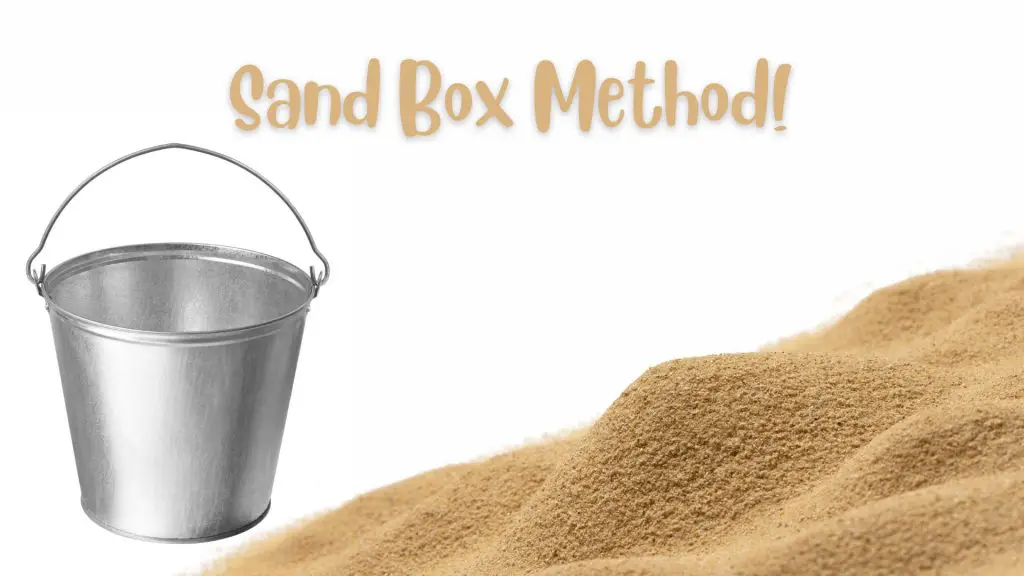
This method is one of the most effective ways to store root vegetables like carrots without refrigeration. It extends the shelf life for up to 6 months.
To do this:
- Take a bucket or box and add a two-inch layer of moist sand or sawdust. Add your carrots and then layer on more sand.
- Repeat the process until you’ve reached the top of the bucket/box. Finally, cover the assortment with around 3 inches of sand.
- Keep this container in a cool and dry place or a root cellar. Make sure to not place it in a warm place, as the carrots will start growing roots if the temperature is too high.
- Simply dig out the carrots when you need them and enjoy them fresh
Storing Carrots For A Short Period:
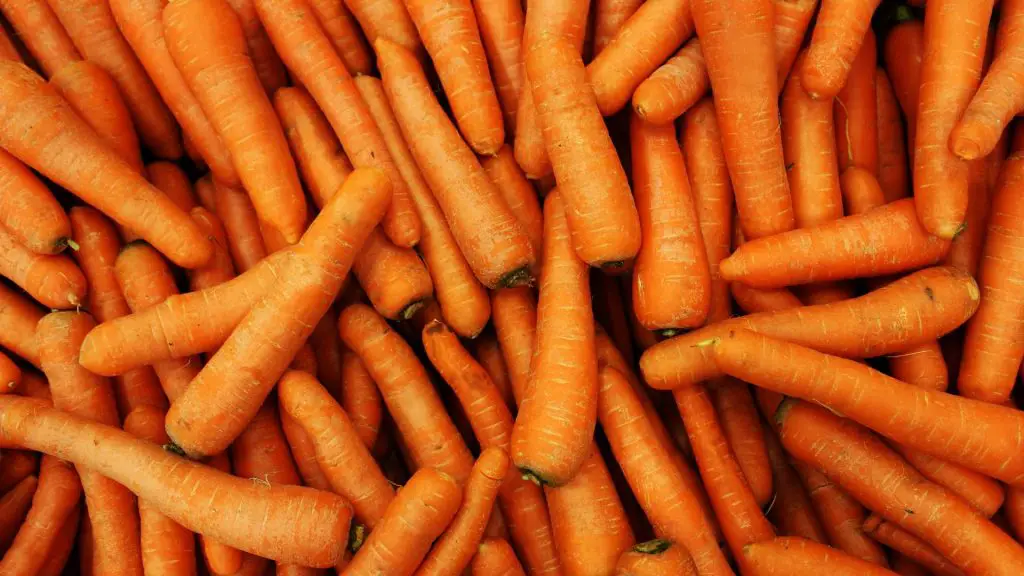
Try this method if you want your carrots to remain fresh for a short period and do not want to keep them in the refrigerator.
- Wash, peel, and cut all the carrots right after buying them (unless they’re baby carrots, in which case you don’t have to cut them)
- Dry them thoroughly as described earlier
- Wrap them in damp paper towels or place them in a sealed container filled with water. Ensure that the container is not airtight, as this can halt the storage process
- Leave the containers in a cold storage place and have delicious carrots for up to two weeks.
Frequently Asked Questions:
The topic of storing carrots is a complex one, and there may be many things you may be confused about. Here are the most commonly asked questions regarding the preservation of these vegetables.
1. How long can you store carrots at room temperature?
Carrots can only stay fresh for up to a week at room temperature without any preservation. In summer, this shelf life is dramatically reduced as the room temperature causes the carrots to readily lose moisture.
2. How do you tell if a carrot has gone wrong?
Carrots rot like any other food rots. Usually, the texture will become mushy, soft, and wilted. It might also start producing a foul smell along with black or green marks on its skin. When you start to see any of these on your carrots, it is a clear indicator that they are not safe to eat anymore.
3. Is constantly checking the carrots necessary when you store them?
No, you should not disturb the carrots unless you want to consume them. If you constantly remove the covering from the carrots, it will allow moisture to pass in and damage them. Instead, you can use clear containers to keep a close eye on the carrots, eliminating the need to touch them.
4. Does storing carrots make them lose their nutrients?
No, it is the opposite. Carrots tend to develop a higher amount of vitamin A as they are kept away from direct sunlight, so the concentration of nutrients grows with time. Stored carrots will be a lot healthier than freshly bought ones.
5. What kind of container should I store the carrots in?
For the sanding method, any basket should be fine as long as it has no holes (the uneven texture causes the carrots to bruise). Any clear container should work as long as it isn’t completely airtight. Any plastic bag is great if it is not cheap and won’t loosen up with time.
Conclusion
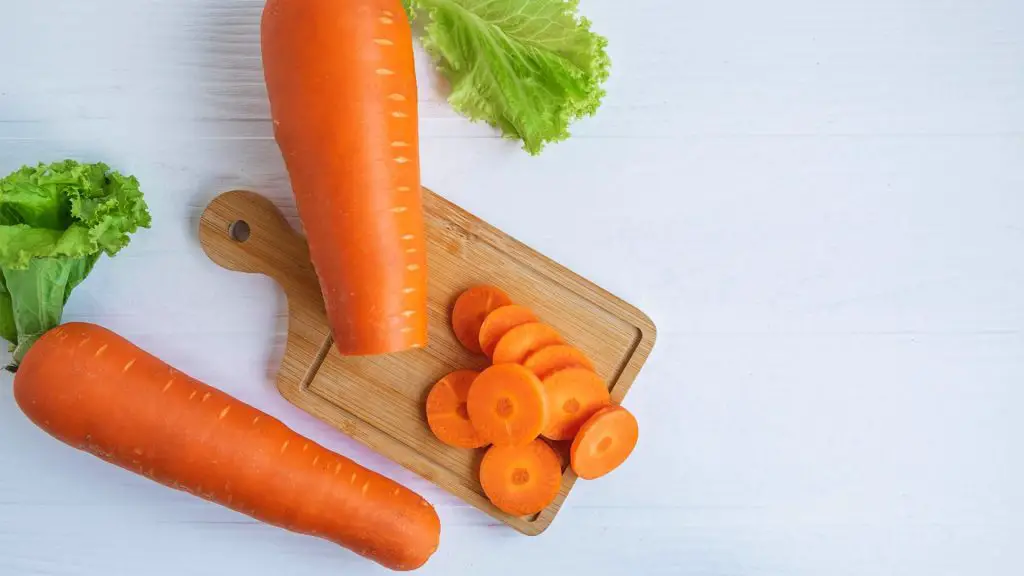
In conclusion, storing carrots without a refrigerator is a crucial thing to learn as it has many benefits. Creating space in your refrigerator may be a hassle, and a larger size would be too costly. When the seasons change, the price for carrots also increases, so storing carrots earlier on can help you save some cash too.
Other than this, if you generally dislike the idea of frozen food, the more natural methods listed in this article that many generations have used before us could help you. Stored carrots are safe and healthy to eat, so follow these methods carefully. Happy harvesting!
